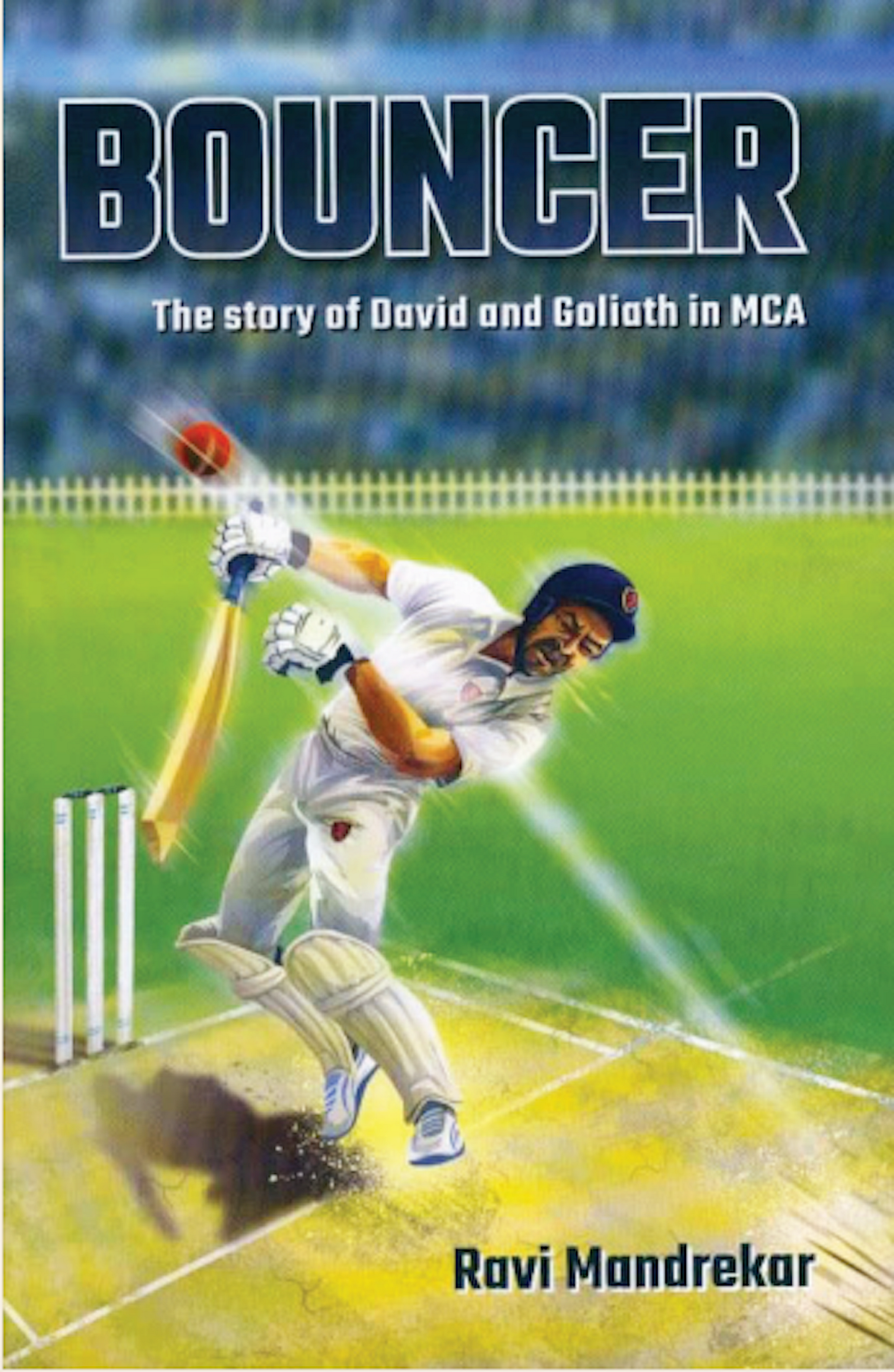Book Review: Just not cricket
Living up to its title, 'Bouncer' by Ravi Mandrekar, a recently released exposé on alleged corruption in the MCA, has created quite a storm in Indian cricket’s richest state board

Living up to its title, 'Bouncer' by Ravi Mandrekar, a recently released exposé on alleged corruption in the Mumbai Cricket Association (MCA), has created quite a storm in Indian cricket’s richest state board. The MCA is a permanent member of the BCCI (Board of Control for Cricket in India) and houses the BCCI headquarters in south Mumbai’s Wankhede Stadium.
Mandrekar is a former office bearer of the MCA and is president of the Hindu Gymkhana Club, which is one of the founder members of the Bombay Cricket Association, now known as the MCA.
Established in 1930 MCA is run by a managing committee which is elected every two years by the general body consisting of 350 member-clubs. The MCA owes its rich cricket heritage to the quadrangular and pentangular tournaments played in Bombay with star cricketers of the country participating in them.
Bombay has given the country nearly 70 test cricketers. The MCA has dominated the Ranji Trophy since 1934- 35, winning 41 out of 87 times the tournament has been played. The MCA also has a record 15 victories in a row (from 1958–59 to 1972–73). But now, Mumbai’s Ranji Trophy team struggles at the initial stages and has lost to teams from Chhattisgarh and Puducherry.
'Bouncer': The Story of David and Goliath in MCA
by Ravi Mandrekar
Granthali
Rs 400
The book is full of citations, graphs and a two-page chart about the distribution of complimentary passes for the India-West Indies match of 2019 in Mumbai.
Mandrekar gives a break-up of different stands in the stadium, and the passes given to guests ranging from government officers, police, politicians, income tax, MMRDA, the city planning authority, prohibition and excise, customs and players.
He has also pointed out the irregularities involved in the distribution of such passes and tickets in some cases. He has also alleged discrepancies, among others, about the number of tickets printed and the number shown to auditors in some other cases.
Mandrekar, a cricketer himself, says he has often seen elite members standing with a glass of beer in hand talking against corruption but not standing up to bullies and not insisting on accountability from authorities.
The book points to problems of corruption in sport, with cricket now a money spinner and tournaments like the IPL bringing in huge sums for the BCCI. The message is simple. Cricket has become a business minus professionalism. Corrupt elements have infiltrated the game; there is a fiefdom for politicians and their families.
This is not how it used to be. Mumbai cricket was formerly run by middle-class, genuine cricket lovers, those dedicated to the sport. M.V. Chandgadkar, an able administrator and former BCCI secretary was a professor of English at Mumbai’s noted R.A. Podar College of Commerce and Economics.
When Pepsi was entering the market in India in 1990, it organised international cricket matches at Wankhede stadium for two days and the management agreed to rent out the stadium for Rs 50,000. It was only after protests from members like Mandrekar that the amount was raised manifold.
Books like these need to be written about every cricket association in the country. It is time to take a hard look at what is not cricket. Sports, after all, is about people, character and excellence.
(Vidyadhar Date is a senior journalist; syndicated by The Billion Press)
Follow us on: Facebook, Twitter, Google News, Instagram
Join our official telegram channel (@nationalherald) and stay updated with the latest headlines